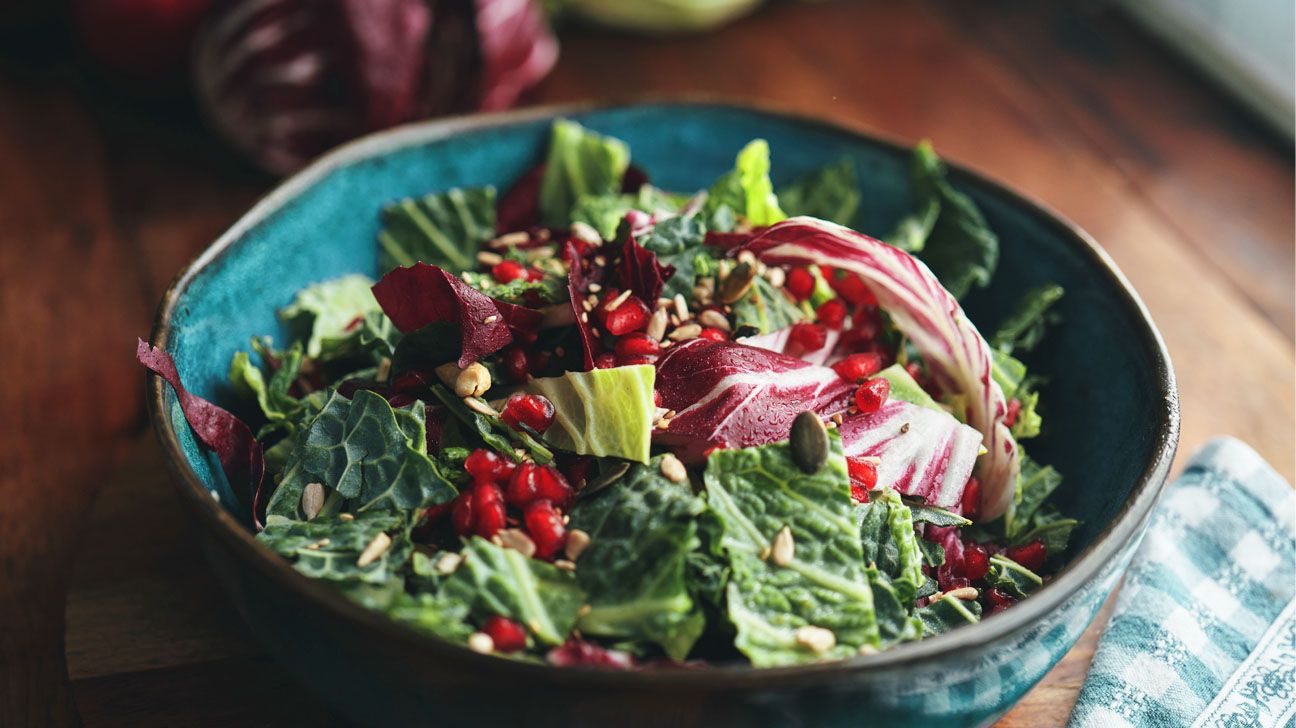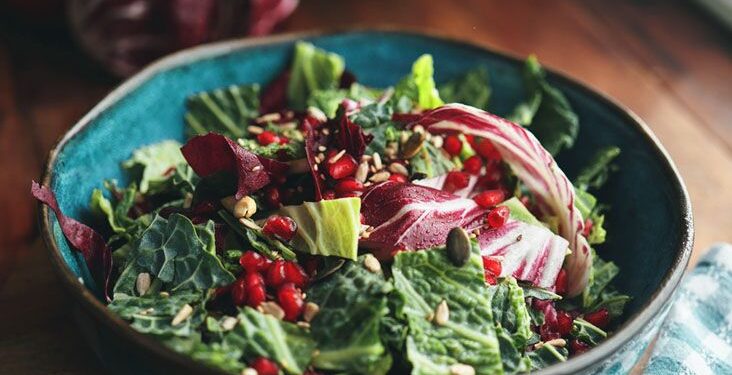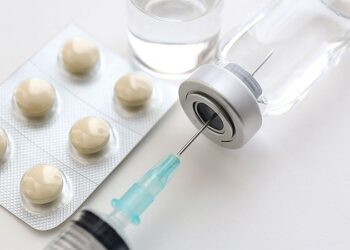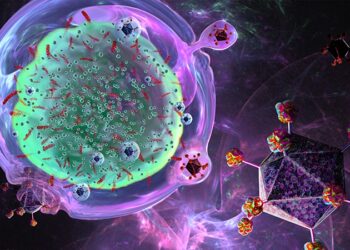
- An anti-inflammatory diet may be beneficial for colon cancer survivors.
- In a clinical trial, those with colon cancer who followed an anti-inflammatory diet had longer overall survival rates than those who ate a pro-inflammatory diet.
- More research is needed to determine this effect, but it may be due to the impact anti-inflammatory foods can have on inflammation, which is linked to the development of cancer.
People living with colon cancer who ate an anti-inflammatory diet in a clinical trial had longer overall survival rates compared to those who ate a pro-inflammatory diet.
“One of the most common questions that patients ask is what they should do after treatment to maximally reduce their risk of cancer recurrence and improve survival,” Sara Char, MD, a clinical fellow in Hematology and Oncology at Dana-Farber Cancer Institute and first author of the study, said in a press statement.
“These findings add to the published literature about the importance of dietary patterns and physical activity in outcomes of patients with colorectal cancer.”
The researchers used information from a stage 3 clinical trial that commenced in 2010 with the goal of reducing the risk of cancer recurrence among people living with stage 3 colon cancer. The trial enrolled 2,526 patients.
In the trial, those living with colon cancer had surgery and then either three or six months of chemotherapy. Some of the patients also had celecoxib, an anti-inflammatory drug.
The participants had the option of completing both the lifestyle and dietary questionnaires. A total of 1,625 participants were eligible for the study.
The researchers examined the responses to the dietary questionnaires and calculated an empirical dietary inflammatory pattern score for each participant. This score measures how inflammatory a particular diet is.
In the study, a pro-inflammatory diet was considered one that included higher amounts of processed or red meats, refined grains, and sugar-sweetened beverages.
After assessing the diets of participants as well as their overall survival, the researchers concluded that those who ate the most pro-inflammatory diets had an 87% higher risk of death than those who ate the least amount of pro-inflammatory foods.
The study adds to a growing body of research indicating that systemic inflammation can not only increase the risk of colon cancer but also influence disease progression.
The researchers also examined the impact of physical activity on patient outcomes. Those who reported their physical activity as the equivalent of regularly walking at a 2–3-mile-per-hour pace for one hour roughly three times a week or more were considered to have a high level of physical activity.
The researchers found that those who ate more anti-inflammatory foods and participated in higher levels of physical activity experienced the best overall survival outcomes of those studied. They had a 63% lower risk of death compared with their peers who consumed the most pro-inflammatory diets and had lower levels of physical activity.
The researchers say further study is needed to determine the mechanism underpinning anti-inflammatory diets and survival rates among patients with colon cancer.
“This study provides additional evidence that diet may be important for improving outcomes and survival in patients with stage 3 colon cancer,” Kimmie Ng, MD, co-senior author of the study and associate chief of the Division of Gastrointestinal Oncology at the Dana-Farber Cancer Institute, said in a press statement.
“Further studies are needed to tailor specific dietary recommendations for patients with colon cancer, and to understand the biological mechanisms underlying the relationship between proinflammatory diets and survival.”
Past research suggests that inflammation may play a role in the development of colon cancer by promoting the proliferation of tumor cells as well as suppressing anti-tumor immunity in the body.
“Inflammation is a key part in cancer formation,” said Nilesh Vora, MD, a board certified hematologist and medical oncologist and medical director of the MemorialCare Todd Cancer Institute at Long Beach Medical Center in Long Beach, CA. Vora wasn’t involved in the study.
“When the body is inflamed, there are damages that are happening, and the body needs to repair or heal the injury, and produce an inflammatory response. And whenever you have that happening, there’s a risk factor for tumor formation, for cancer formation, whenever there’s an inflammatory process happening. So I think this inflammatory diet connected to cancer is also connected by that hypothesis,” Vora told Healthline.
Another possible mechanism behind anti-inflammatory diets and survival rates are due to the impact of the phytonutrients found in anti-inflammatory foods.
“It is likely in some parts related to the increase in phytonutrients found in anti-inflammatory diets that protect the gut mucosa (the lining of the colon) and the good bacteria that are in the colon,” said Dana Hunnes, PhD, a senior dietitian supervisor at RR-UCLA Medical Center. Hunnes wasn’t involved in the study.
“It’s also likely that these plant foods are high in fiber, which helps feed the healthy gut bacteria and also ‘brush away’ decaying foods and other fecal materials that may increase the risk for colon cancer. There are certain foods (high fiber carbs primarily) that get digested by gut bacteria and turn into short-chain fatty acids, which feed the healthy bacteria of the gut, which can help decrease colon cancer progression. So, these might be some of the mechanisms,” Hunnes told Healthline.
Hunnes cited various nutrient-dense foods to eat as part of an anti-inflammatory diet.
“These findings do not surprise me at all as we are finding that inflammation affects so many chronic conditions in negative ways. I think it shows the importance of and value of eating as healthy and as anti-inflammatory as possible.”
Source link : https://www.healthline.com/health-news/colon-cancer-anti-inflammatory-diet-improves-survival-rates
Author :
Publish date : 2025-06-04 12:39:00
Copyright for syndicated content belongs to the linked Source.













